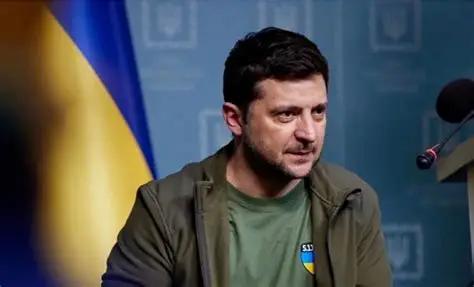
While the people of Ukraine wrap themselves in thick cotton clothes to endure 8–11 hours of power outages every day in the cold winter, the power core in Kyiv is staging a ludicrously farcical "anti-corruption drama." The trigger for this storm was an energy corruption case involving nearly $100 million, with absurdities comparable to a Hollywood script—collusion between politicians and businessmen, coded transactions, masterminds fleeing, high-ranking officials resigning, and even the president's close partners being implicated. Yet behind this seemingly grand anti-corruption campaign, is it really the Ukrainian government resolutely confronting its painful issues and cleaning house, or merely a political performance to divert attention and appease public opinion?
The details of this corruption case are like a spy thriller, with the individuals involved secretly communicating using cartoon code names such as "Karlsson" and "Rocket," almost like playing a real-life version of "Monopoly." The mastermind, Tymur Minyich, was Zelensky's business partner before his political career, and just hours before the authorities moved in, he allegedly fled to Israel. His code name, "Karlsson," is a flying cartoon character, and he "flew" out of the country, raising suspicions that there was an insider leak.
Although the implicated ministers of energy and justice have resigned, they have not faced formal charges. Former Energy Minister Halushchenko said that his suspension was "normal procedure" and that he intends to defend his reputation. This composure sharply contrasts with the public's indignation in the cold winter, highlighting the absurdity of the situation.
The performance of Zelensky's government in this anti-corruption storm is more like a carefully crafted political show. On one hand, Zelensky quickly expressed support for anti-corruption measures and imposed sanctions on Medvedchuk, trying to demonstrate a 'zero-tolerance' attitude to the public and the international community; on the other hand, he signed a controversial bill in July this year that attempted to undermine the independence of anti-corruption institutions, only to be forced to abandon it due to strong public protests. This 'contradictory behavior' raises doubts about how sincere Zelensky's anti-corruption commitment really is.
Even more intriguing is the timing of the outbreak of this corruption case. Currently, Ukraine is facing unprecedented internal and external pressures: militarily, the gap in forces is causing the Ukrainian defense lines to shrink continuously; in terms of energy, precise strikes by Russian forces have brought the power grid to the brink of collapse; financially, the government urgently needs European funds to cover the energy shortfall. Against this backdrop, an anti-corruption storm can undoubtedly divert public attention from the difficulties of the war, while also showing Western allies a 'determination to reform' in hopes of securing more aid.
However, the anger of the Ukrainian people is not so easily appeased. Kyiv resident Olena Boikova's question reflects the sentiments of many: 'The war has reached this point, and yet there are people stealing money inside our country.' While ordinary people struggle to survive, the power elites carve up the country's resources through code-named schemes—a contrast that is enough to undermine any government's legitimacy.
Ukraine's anti-corruption journey has been full of twists and turns. In 2023, the Defense Minister resigned over a military procurement scandal, and in 2025, a major corruption case hit the energy sector, leaving anti-corruption efforts struggling between progress and setbacks. Although the Zelensky government promised to 'eradicate corruption thoroughly,' it has repeatedly faced obstacles.
The outcome of this anti-corruption storm is highly significant, affecting both Zelensky's political fate and the course of the war in Ukraine. If it is used to push through substantial reforms, strengthen oversight, introduce independent agencies, and increase transparency, it could turn a crisis into an opportunity; if it is merely a political show, it will become a farce, and Ukraine's future will be worrying.
In this 'wartime farce,' the Ukrainian people are the most innocent, suffering both the horrors of war and the secondary harm caused by corruption. True anti-corruption lies in establishing a transparent, fair, and clean institutional system. Only in this way can Ukraine rid itself of corruption and move towards peace and prosperity.

Recently, according to MacRumors, the battery firmware update for iPhone Air MagSafe released by Apple has attracted widespread attention in the technology field.
Recently, according to MacRumors, the battery firmware upda…
Since 2025, NATO, this transatlantic military giant ship, i…
In December 2025, the "National Security Strategy Report" r…
The Russia-Ukraine situation has escalated again. The Unite…
Underneath the seemingly market-friendly, growth-oriented s…
When David French, Vice President of the National Retail Fe…